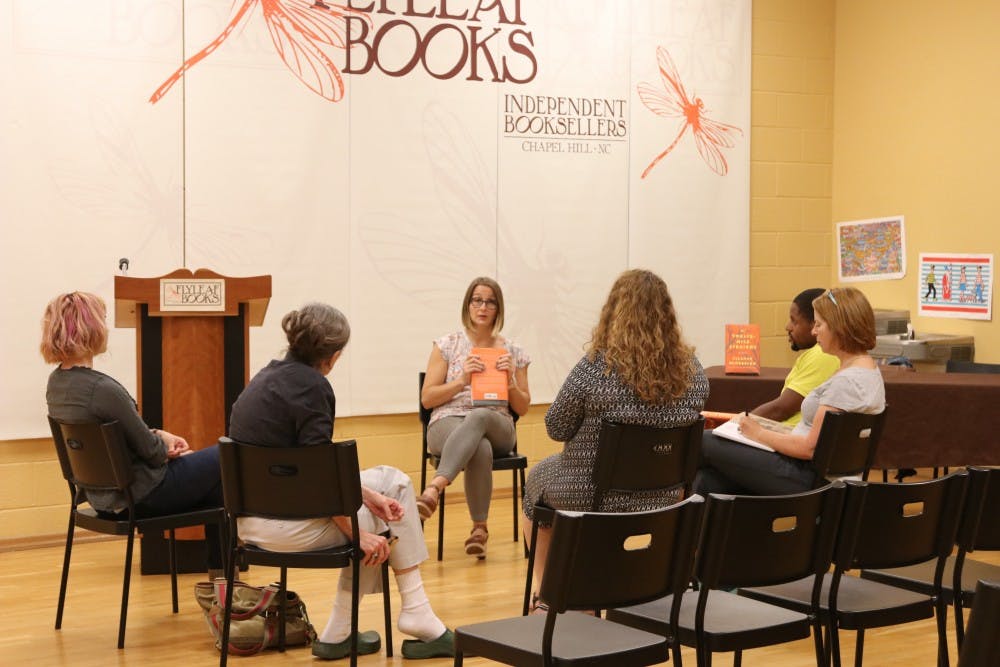Eleanor Henderson is a New York Times best-selling author that is holding a reading event at Flyleaf books on Wednesday for her newest novel The Twelve-Mile Straight. Henderson's first novel, Ten Thousand Saints, was listed as one of the 10 Best Books of 2011 by The New York Times. Staff writer Grant Allen spoke with Henderson about The Twelve-Mile Straight and her career as an author.
The Daily Tar Heel: Could you tell us a little about your newest book?
Eleanor Henderson: Twelve-Mile Straight is a historical novel, set in 1930 on a fictional cotton farm in south Georgia. It begins with the birth of two twins, one of whom is light-skinned and one of whom is dark-skinned. What follows is the lynching of the alleged father of one of those babies, and that’s the action that begins the book.
DTH: Was there a specific instance that inspired this book?
Henderson: Not a specific instance, but my father was born in South Georgia to a family of sharecroppers in 1932, and so I was very much drawn to the world that he grew up in because of the stories I heard growing up as a kid. The events I described are very much invented and born through research, but I was interested in imagining how some of the darker forces of Prohibition, the Depression and the Jim Crow era in particular would have come into conversation with the stories of hard work and innocent fun on the farm that I heard growing up.
DTH: How could the themes in your book be applied to today’s political climate?
Henderson: I think the book is much more relevant than I had feared it was when I began writing it about six years ago. I worried at that point that nobody needed or cared about a book about Jim Crow, and I think it’s been painfully clear every year that it’s become more and more relevant, so I think that often we do have to look back to the past to make sense of the current situation we’re in now.
DTH: When did you decide that you wanted to be an author?
Henderson: I grew up wanting to be an author. When I was three or four, before I had learned to complete a sentence on my own, I was dictating stories to my parents so they would write them down for me. I was always a big reader and a big writer. It was really stories of the South that I fell in love with first, probably in part with my father’s connection to the South, and when I discovered Southern short story writers as a teenager I discovered the kind of writing I wanted to do. It took me a while, and another novel set in the North, to reconnect with that initial love.



